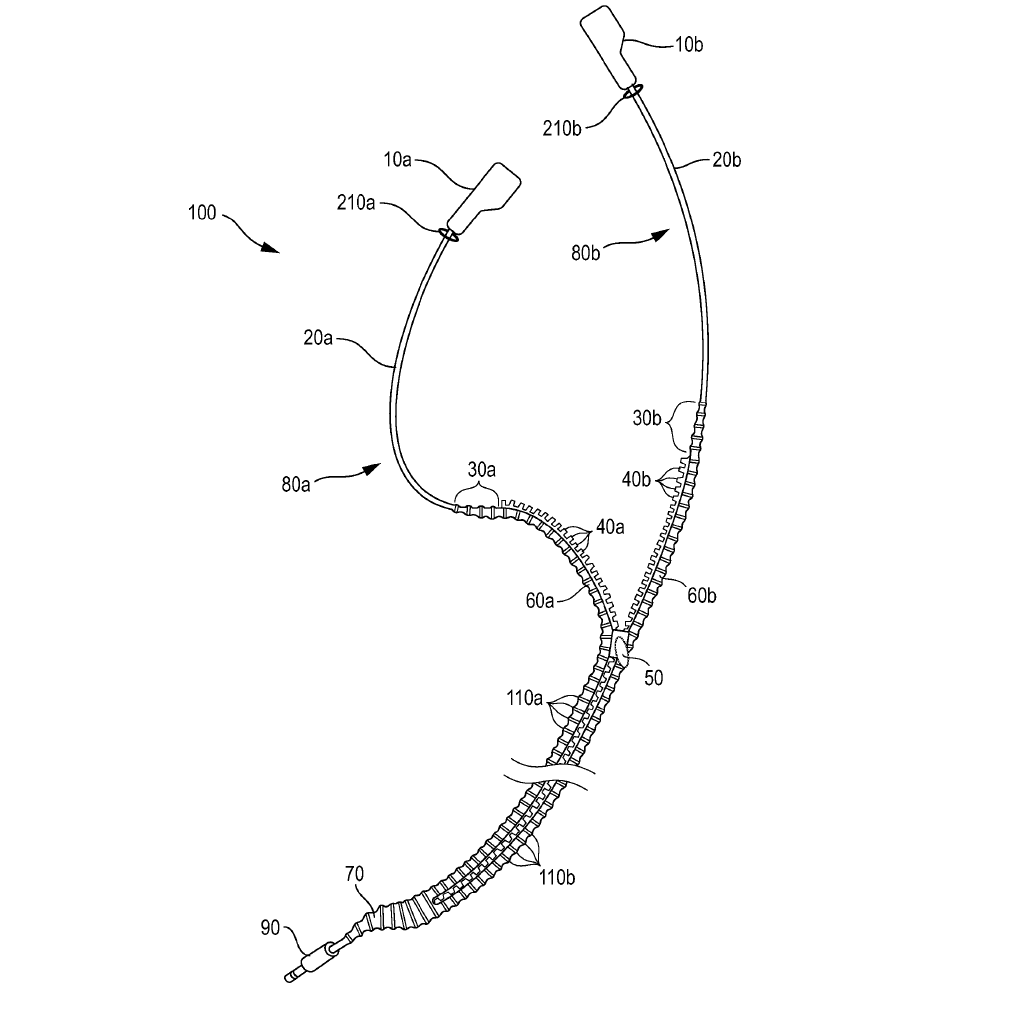- Rockin’ Patent®: US Patent No. 8,455,758
- Filed: 8 November 2010
- In the name of: Zipbuds, LLC (assignee)
- Title: Cable Organization Assemblies
- What’s claimed: “A cable assembly comprising: a first electrical wire; a second electrical wire; a thermo-resistant material that is molded around the first electrical wire and around the second electrical wire; zipper teeth that are molded to the thermo-resistant material of the first electrical wire and the second electrical wire;the zipper teeth molded to the first electrical wire being releasably attached to the zipper teeth molded to the second electrical wire; and at least one reinforcing fiber, the at least one reinforcing fiber being encapsulated with at least one of the first electrical wire and the second electrical wire.”
- Why this patent rocks:
- The patent describes the problem of cable entanglement, in particular for headphone cables: “Multiple electronic devices are designed to be used with a plurality of connecting wires and cables. Common examples include audio or video players that have a headphone jack, or have ports for speaker wires. A common problem for users is that these cables often become entangled with each other. For example, left and right headphone wires readily become intertwined and knotted, especially in ear bud style headphones. Additionally, stereo speaker wires usually are configured in pairs and can also become entangled with themselves or other wires”.
- The invention seeks to solve this problem by having a zipper mechanism to help prevent entanglement.
- The patent also describes materials and fabrication techniques intended to overcome problems with known manufacturing techniques that involve elevated temperature and stress during fabrication.
- Zipbuds, LLC appear to have implemented this technology in several of their products: Juiced 2.0 and PRO mic.
If you’re a patent-savvy music tech business looking for patent help, get in touch with Russell IP here!
The information above is for general interest and information only and does not constitute legal advice.







